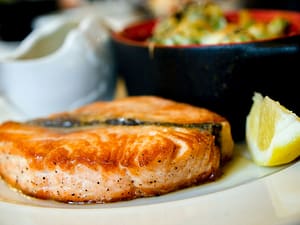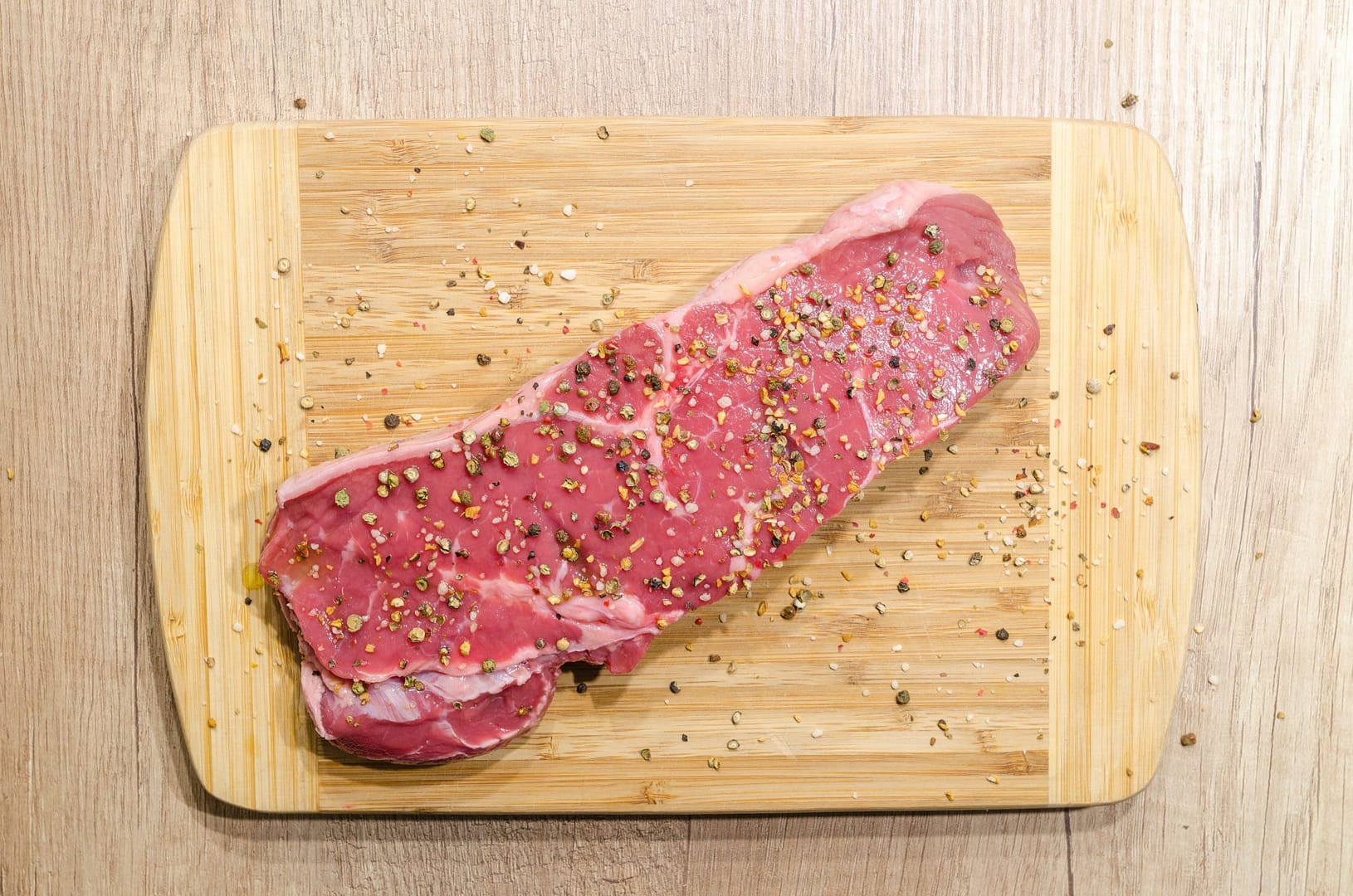[grwebform url=”https://app.getresponse.com/view_webform_v2.js?u=wfNAY&webforms_id=63128901″ css=”on” center=”off” center_margin=”200″/]
The Carnivore Diet Plan: A Simple Start for Busy Women
 Are you seeking a straightforward way to improve your well-being and balance your hectic life? The carnivore diet may be the solution you’ve been searching for.. This dietary approach focuses exclusively on animal products. It eliminates plant-based foods and offers a zero-carbohydrate option. Proponents of the carnivore diet argue that it offers health benefits, but it’s essential to consider this approach’s limitations and scientific backing. We understand your desire for simplicity and wellness. That is why we’ve prepared this beginner’s guide to help you navigate the carnivore diet’s potential advantages and pitfalls.
Are you seeking a straightforward way to improve your well-being and balance your hectic life? The carnivore diet may be the solution you’ve been searching for.. This dietary approach focuses exclusively on animal products. It eliminates plant-based foods and offers a zero-carbohydrate option. Proponents of the carnivore diet argue that it offers health benefits, but it’s essential to consider this approach’s limitations and scientific backing. We understand your desire for simplicity and wellness. That is why we’ve prepared this beginner’s guide to help you navigate the carnivore diet’s potential advantages and pitfalls.
“The carnivore diet offers a straightforward way to simplify meal planning and may help improve your well-being. Embrace the convenience and richness of protein from animal products. However,, be cautious about potential drawbacks, including nutritional deficiencies and the exclusion of fiber-rich plant foods.”
Now that you’re intrigued by the idea of the carnivore diet, let’s delve into what you can incorporate into your new carnivore diet plan. To experience the full spectrum of nutrients and unlock the carnivore diet benefits, it’s crucial to diversify your animal-based food sources. The carnivore diet primarily revolves around animal-derived foods, with an emphasis on meat. For busy women like you, a variety of options are essential. Think beef, pork, lamb, poultry (like chicken and turkey), and game meats. These meats can be enjoyed in multiple preparations, from sizzling steaks to ground or minced meat for quick and easy meals. Don’t forget that the carnivore diet also welcomes fish and seafood, offering further options for nourishing your body.
Embracing the Versatile World of Animal Products
Eggs, as animal products, have a secure spot in the carnivore diet. They’re a versatile, easily digestible source of protein, healthy fats, vitamins, and essential minerals. Whether you prefer them boiled, fried, poached, or scrambled, eggs can be a valuable addition to your dietary routine. Considering the carnivore diet benefits, incorporating eggs into your meal plan is a smart move. They provide essential nutrients for your journey.
When it comes to full-fat dairy products, inclusion in your carnivore diet depends on your individual approach. If you’re a purist, you might opt for dairy items made from animal milk in your carnivore diet plan. These dairy products encompass butter, heavy cream, cheese, and high-fat yogurt. However, it’s important to consider the carb content in some of these items, especially cheese, and assess how closely you want to adhere to the diet. If you’re following this diet to address specific health concerns, you might choose to exclude dairy, especially if you’re lactose intolerant, as it contains milk sugar. Your dietary choices should align with your wellness goals and preferences.
Boosting Your Diet with Omega-3 Rich Options

Understanding the Carnivore Diet Rules

On the flip side, you’re encouraged to savor animal fats as part of the carnivore diet. This category includes indulgent options like butter and lard, allowing you to relish the satisfying richness they bring to your meals.
Easing into Your Carnivore Journey
Embarking on a carnivore diet is best approached gradually, especially if your previous diet was carb-heavy and processed. Making this transition step by step minimizes potential side effects and allows your body to adapt comfortably.
To kick-start your carnivore journey effectively, begin by reducing your carbohydrate intake while gradually increasing your consumption of meat and animal products over time. This gradual shift can be as simple as adjusting one meal at a time, then progressing to a daily adjustment. By easing into the diet, you’ll provide your body the space it needs to adapt and thrive.
Carnivore Diet: Hydration Matters

To maintain proper hydration and efficient muscle function, ensure your diet includes an adequate supply of electrolytes, a vital part of the carnivore diet plan. You can achieve this by incorporating Himalayan salt into your meals or sipping on organic bone broth. Taking supplements may also be a valuable consideration to guarantee your body receives the necessary electrolytes.
In the carnivore diet, plants and vegetables are typically a source of water. Since these are limited in this diet, it’s vital to ensure you’re drinking ample fresh water to make up for this shortfall. Staying well-hydrated helps your body adapt and function optimally during this transition.
Carnivore Diet Before and After: Handling Side Effects
As your body adapts to the new diet, it’s natural to encounter some side effects. These may include headaches, insomnia, fatigue, irritability, brain fog, dizziness, and digestive issues such as nausea and diarrhea, similar to the “keto flu.”
The good news is that you can alleviate these side effects by staying well-hydrated with ample water intake and by gradually transitioning to a full carnivorous diet. Additionally, it’s essential to be prepared for cravings for sugar and carbohydrates and have strategies in place to overcome them when they arise. By proactively managing these effects, you can navigate the transition more smoothly.
Carnivore Diet Benefits

Moreover, the benefits of a carnivore diet extend to the richness of protein found in meat. This protein source is a powerhouse, providing all the essential amino acids your body requires for growth and repair. Amino acids also play vital roles in the production of enzymes, hormones, immune cells, and numerous other essential bodily functions. By embracing the carnivore diet, you’re not just simplifying your eating habits but also fueling your body with the nutrients it craves.
Freedom from Food Allergies and Intolerances
For those who commit to the carnivore diet, there’s a potential opportunity to overcome allergies or intolerances to specific foods. Frequently, these problem foods include wheat, soy, or various fruits and vegetables, which can lead to discomfort and symptoms like diarrhea. Choosing the carnivore diet may be a path to liberation from these unpleasant and uncomfortable reactions, enabling you to enjoy your meals without the worry of triggering such issues.
Carnivore Diet Side Effects: Considerations

Additionally, even if the diet doesn’t directly cause a deficiency, the restricted range of nutrients and phytochemicals available may limit your potential to achieve optimal health. Maintaining a balance and exploring nutrient-rich sources can help mitigate these potential downsides.
Carnivore Diet Gut Health
The omission of plant foods from the carnivore diet means a lack of dietary fiber. Fiber plays a critical role in aiding digestion and providing sustenance for the beneficial bacteria residing in your gut. Consequently, the absence of fiber can potentially result in digestive challenges, notably constipation. Beyond this, it may lead to dysbiosis, a condition characterized by an imbalance in gut bacteria, with an overabundance of harmful bacteria. This, in turn, can increase the risk of gut infections and inflammation. It’s essential to be aware of these potential consequences and explore strategies to support your gut health.
Balancing Convenience and Variety
While the diet’s simplicity in meal planning offers convenience, it can also present a challenge: the potential for monotony. Consuming the same foods day in and day out may lead to a sense of culinary boredom. Finding creative ways to add variety to your carnivore meals can help combat this issue, ensuring you stay engaged and satisfied.
Saturated Fat and the Carnivore Diet
In moderation, saturated fat does not pose health risks. However, a carnivore diet could inadvertently lead to excessive saturated fat intake. This overconsumption increases the risk of heart disease and insulin resistance. It’s vital to maintain a balanced approach to your fat intake to support your overall well-being.
Consulting a Health Professional for Guidance
When contemplating a challenging and extreme dietary shift, it’s advisable to consult a health professional. Seeking expert advice can help ensure that the diet won’t exacerbate any existing health issues. Your well-being is a priority, and a professional’s guidance can offer valuable insights and reassurance.
When transitioning to an extreme diet, it’s common for well-meaning friends and family to express concerns or doubts about your choice. To counter this and seek the support and encouragement you need, consider joining online communities, especially on social media platforms. These communities do more than provide a sense of belonging. They also serve as a valuable resource for recipe ideas and a platform to have your questions answered. Sharing your journey with like-minded individuals can be a tremendous help in staying committed to your dietary goals.
Discover More About the Carnivore Diet
Click here to go to our articles section on Weight Loss.
Click here to go to Scienceinfo.com for more information:
[grwebform url=”https://app.getresponse.com/view_webform_v2.js?u=wfNAY&webforms_id=57753701″ css=”on” center=”off” center_margin=”200″/]

